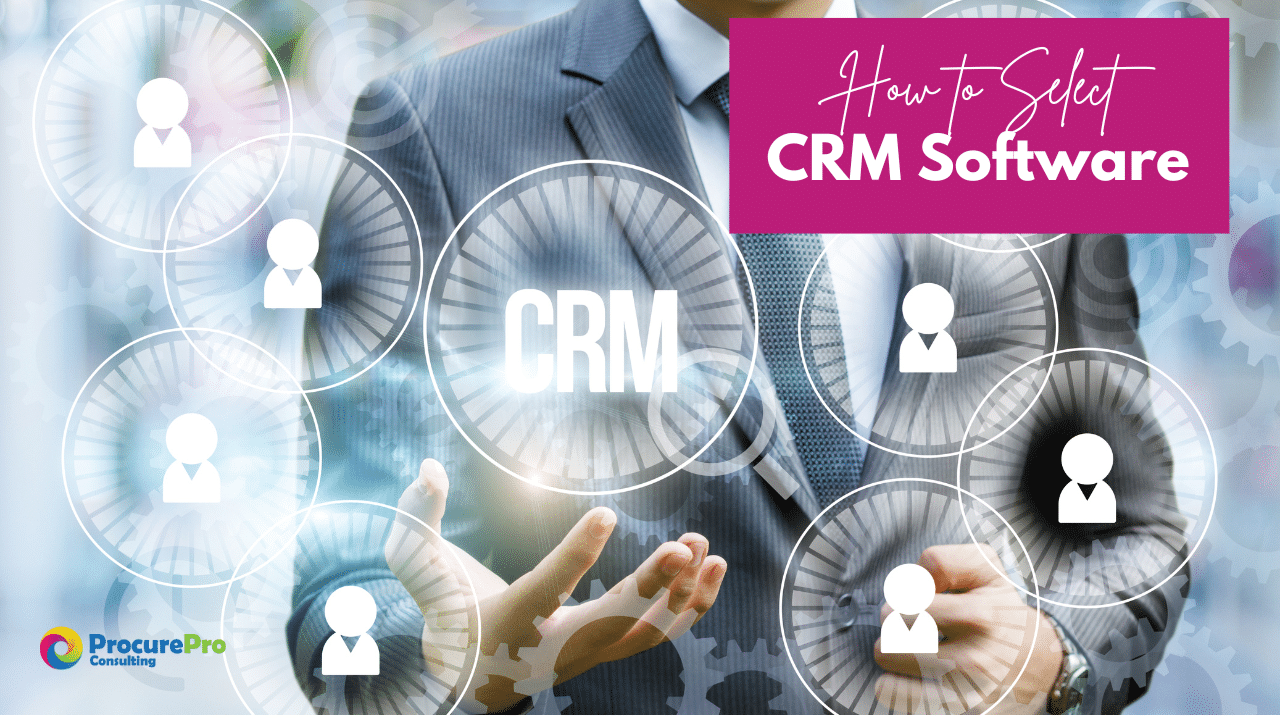By Jill Button, President & CEO, ProcurePro Consulting
Understanding your customers and managing relationships effectively can be the difference between success and stagnation. Selecting the right Customer Relationship Management (CRM) Software is critical to manage and grow your business.
Why is this topic important now?
In this digital age, data is king. For Canadian businesses, especially small and medium-sized businesses (SMB), leveraging data to enhance customer relationships is fundamental. A CRM system not only streamlines sales and marketing, it also provides insights that drive growth. With the global CRM market projected to reach significant heights, businesses must stay ahead by adopting systems that cater to their unique needs.
Current events, trade policies, or economic factors impacting this?
The Canadian market in particular, is experiencing a surge in digital transformation initiatives. Government incentives and grants encourage businesses to adopt digital tools, including CRM systems, to boost productivity and global competitiveness. Additionally, fragile trade agreements like CUSMA (Canada-United States-Mexico Agreement) have increased the urgency to opened up new markets, necessitating efficient customer management systems to handle expanded global operations.
Common issues faced by businesses related to CRM selection
Selecting a CRM isn’t a one-size-fits-all scenario. Businesses often grapple with:
- Data Residency Concerns: Ensuring customer data is stored within Canadian borders to comply with national regulations including privacy concerns. Thankfully many suppliers recognize this concern and are now hosting their client’s data within Canada.
- Integration Capabilities: Integrating the CRM with existing sales and marketing tools and systems, like design, configuration and production systems, without causing disruptions. Disparate systems lead to inaccurate data, rework and burden resources. Integration capabilities must be a top requirement to consider.
- Scalability: Choosing a system that serves the business today but enables growth of the business for the future, without necessitating costly upgrades, or worse, replacement, must also be a top requirement.
Actionable Insights & Strategies
Practical steps businesses can take to address the challenge or opportunity.
- Define Your Requirements: Identify what you require from a CRM—be it sales tracking, customer service management, marketing automation, integration, regulatory, security and other critical factors unique to your business.
- Prioritize Data Residency: Identify CRM providers that offer Canadian data centres to ensure compliance with local regulations. Public sector and those public sector businesses that are highly regulated like financial services, must prioritize this for compliance.
- Integration: Before selecting and implementing a full-scale CRM, validate the CRM’s compatibility with your existing systems. Assess native integration, meaning built to integrate real-time with your systems, or APIs, (Application Programming Interface), available to support integration.
- Training & Support: Do not compromise, you must invest in training your team and choose a provider that offers robust customer support, during implementation and following Go Live to maintain your return on investment (ROI).
Best practices, tools, or frameworks to implement solutions.
- Pilot Programs: Start with a small-scale low risk, implementation or Wave 1, to identify potential issues.
- Feedback Loops: Regularly gather feedback from users to refine CRM usage. This should be part of UAT (User Acceptance Testing) before, during and after implementation.
- Continuous Learning: Stay updated with CRM trends to leverage new features and functionality effectively. Focus on learning and leveraging your new system as much as you can to increase user experience and ROI.
Industry Trends & Future Outlook
The CRM landscape is evolving with trends like:
- AI Integration: Enhancing predictive analytics and customer insights, AI integration is changing the CRM landscape and businesses globally. The ability to understand customers, their challenges and priorities is exponentially enhanced with AI capabilities, and we are just getting started with AI.
- Mobile Accessibility: The majority of users demand mobile enabled solutions. Ensuring CRM platforms are optimized for mobile to support remote workforces is becoming an imperative and “Must Have” requirement.
- Advanced Security Measures: Implementing robust security protocols to protect customer data is again becoming more and more a business imperative. Not just for highly regulated sectors, small and med businesses are recognizing the criticality of mitigating cybersecurity threats.
How businesses can prepare for future changes.
- Stay Agile: Be ready to adapt to new technologies and integrations.
- Invest in Training: Equip your team with skills to leverage new CRM features.
- Focus on Customer Experience: Use CRM data to personalize and enhance customer interactions.
Conclusion & Key Takeaways
Choosing the right CRM is strategically important for all businesses aiming for sustainable growth. By understanding specific needs, prioritizing data compliance, and staying abreast of industry trends, businesses can harness the full potential of CRM systems.
If you’re looking for expert support to to help you select the right CRM for your needs, ProcurePro Consulting is here to help. Setup time with me for an exploratory discussion and let’s craft a strategy that works for your business.
Check out other great articles including Writing Effective RFP Requirements.

